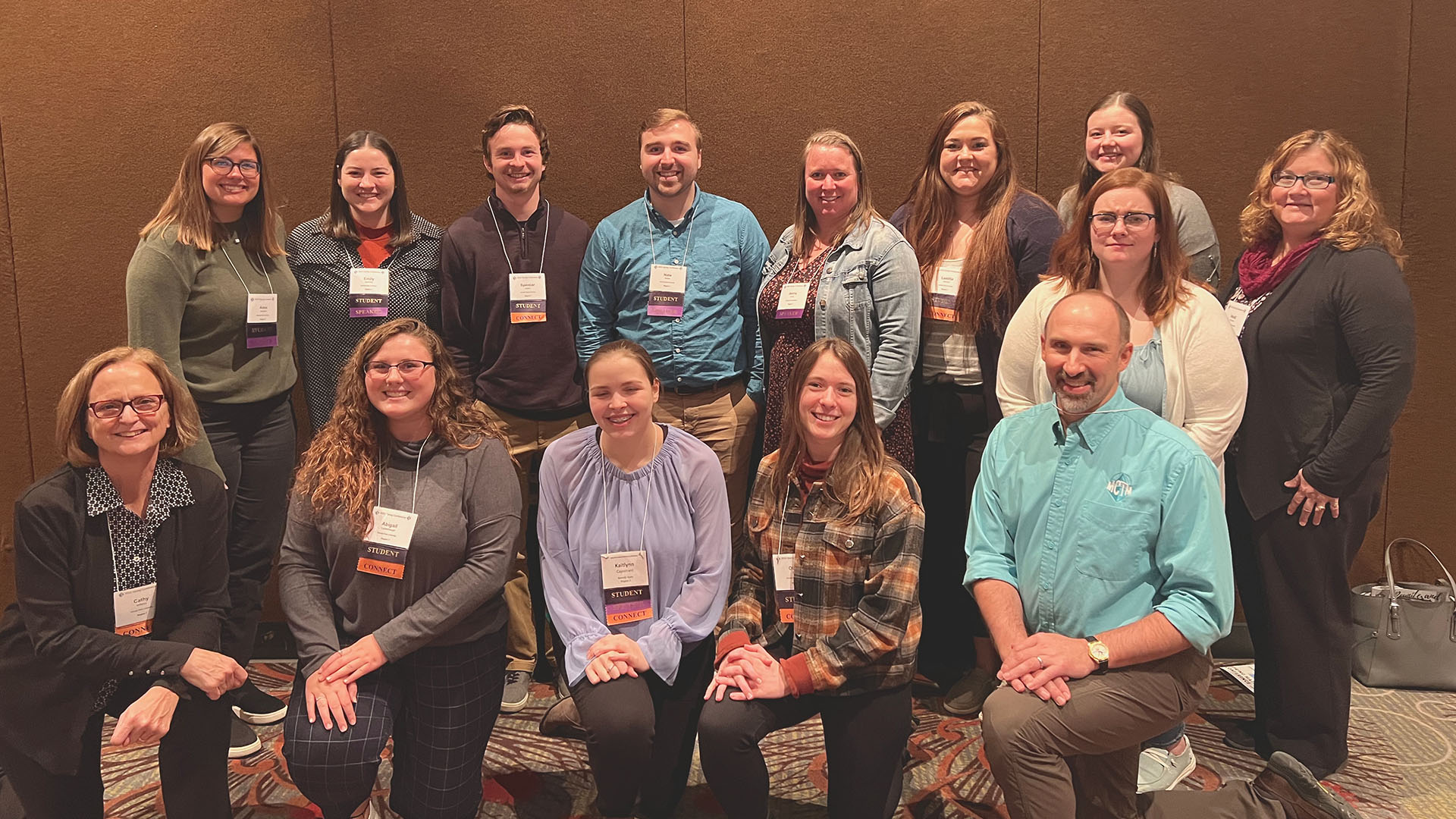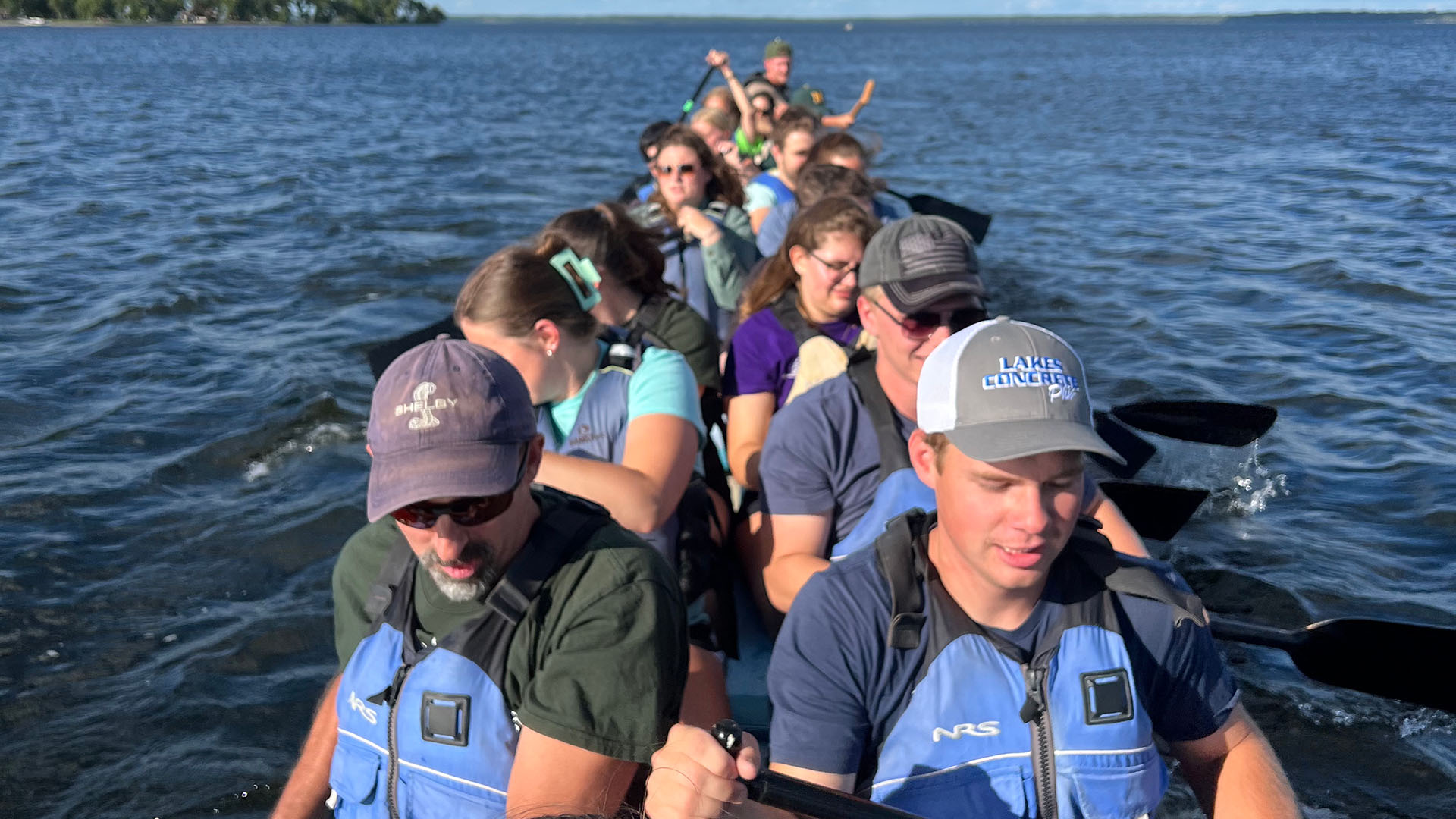Bemidji State University’s successful program to educate new generations of mathematics and science teachers for rural Minnesota will continue with a new round of funding from the National Science Foundation’s Robert Noyce Teacher Scholarship Program.
In a 2016 report, Minnesota’s Education Policy Innovation Center said that chemistry, mathematics and physics classrooms were amongst the 10 most challenging teaching positions for the state’s school districts to fill. The report indicated that more than 20 percent of the state’s school districts ranked these three subjects as “impossible or very difficult” to fill.
The Noyce Teacher Scholarship Program’s $1.26 million grant continues BSU’s vital work to reverse this trend and provide qualified teaching candidates to districts struggling to fill these high-need positions.
BSU’s Noyce program provides financial support, peer support and other training for a student’s final two years of baccalaureate study. It helps students who double-major in a science, technology, engineering or mathematics (STEM) program and also in elementary or secondary education complete their degrees and places them in high-need school districts. The program also offers post-graduate support for newly minted teachers settling into their first classrooms.

Caption: BSU’s first cohort of Noyce scholars presented at the Minnesota Council of Teachers of Mathematics Conference
Dr. Jenna O’Dell, associate professor of mathematics and one of BSU’s principal investigators for the program, says the Noyce grants provide remarkable opportunities for BSU students.
“This grant will provide the full cost of attendance, including a living stipend,” O’Dell said. “And then to repay the grant, they get to teach in a high-need school for four years.”
Dr. Todd Frauenholtz, professor of mathematics, said the peer support students receive through a program-specific learning community is a particularly important aspect of the program.
“We know a STEM degree can be challenging, and research has shown that when students are part of a learning community they’re more likely to graduate,” he said.
BSU’s program welcomed its first cohort of 10 students during Fall 2021, focused exclusively on preparing mathematics teachers. It has since expanded to include students interested in teaching any STEM discipline.
“When we talked to principals and superintendents, they said they still needed math teachers — and also needed science teachers,” O’Dell said. “One superintendent in our county said they hadn’t been able to hire a science teacher in the last five years. So we thought it was really important — even though we’re both math people — to include all of STEM.”
Frauenholtz added that of the first 20 students to go through the program, 18 are currently teaching in Minnesota K-12 classrooms.
“Our goal was to have two groups of eight students each year,” Frauenholtz said. “So we succeeded. We had some students who had phenomenal scholarships who didn’t need the full cost of attendance that our grant provided, so then we were able to support more students.”

Caption: BSU’s first two cohorts of Noyce scholars paddled from campus to downtown Bemidji for ice cream
Partnerships at Red Lake Nation College and Minnesota North College are another new aspect of the program. O’Dell said the partnerships help recruit students who transfer to BSU and after graduation return to their communities as qualified STEM teachers.
In addition, Dr. Rebecca Hoffman, professor of social work, and Dr. Dinush Jayasooriya, assistant professor of mathematics, have joined BSU’s Noyce program to share their different perspectives and specialties with students.
As part of the program, BSU’s Noyce scholars also receive specialized training in teaching diverse K-12 student populations through coursework and other educational opportunities. Some of this training comes through a partnership with Peacemaker Resources, a Bemidji-based non-profit focused on building respectful relationships and healthy communities through communication, compassion and connection.
“These monthly trainings at Peacemaker Resources prepare them to teach the whole child,” O’Dell said. “They learn a lot about emotional intelligence and how to teach students who are under-resourced.”
Frauenholtz led BSU’s outreach to seek Peacemaker Resources and said once they learned about the project, they were eager to participate.
“They said, ‘This is exactly what we do’,” Frauenholtz said. “They work with teachers, help them be more productive in their classrooms, help their students learn more and show teachers how to have better relationships with their students and colleagues. The research they shared with me about social-emotional learning helps students learn more mathematics — and as a math professor, that’s what I want. So I thought this would be a great partnership.”
Unlike many scholarship opportunities for undergraduate students, BSU supports Noyce scholars after graduation. For their first two years on the job, grads can return to the university and continue meeting with advisors and Peacemaker Resources to ensure they have the support they need to succeed in their classrooms.
“Going out and being a teacher is a tough transition,” Frauenholtz said. “It’s a huge job where you have to do all kinds of things that sometimes you’re just not ready to do. So now our graduates have this support network, and we help with that transition.”
BSU is recruiting students interested in joining the Robert Noyce Teacher Scholarship Program for Fall 2025 or Spring 2026. To learn more, visit bemidjistate.edu and search for “noyce.”
Links
- Robert Noyce Teacher Scholarship Program
- Peacemaker Resources
- “Smart Solutions to Minnesota’s Teacher Shortage: Developing and Sustaining a Diverse and Valued Educator Workforce“, Education Minnesota’s Educator Policy Innovation Center (2016)
